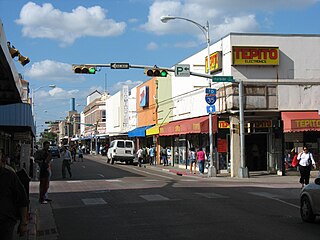
Laredo is a city in the U.S. state of Texas and seat of Webb County, on the north bank of the Rio Grande in South Texas, across from Nuevo Laredo, Tamaulipas, Mexico. Founded in 1755, Laredo grew from a village to the capital of the short-lived Republic of the Rio Grande to the largest inland port on the Mexican border. Laredo's economy is primarily based on international trade with Mexico, and as a major hub for three areas of transportation: land, rail, and air cargo. The city is on the southern end of I-35, which connects manufacturers in northern Mexico through Interstate 35 as a major route for trade throughout the U.S. It has four international bridges and one railway bridge.

Lee College is a public community college in Baytown, Texas. Lee College's main campus occupies 40 acres (160,000 m2) near downtown Baytown and extension campuses throughout its service area. The school has an enrollment of over 7,773 total students as of Fall 2018. Approximately 83% are part-time students, and about 17% are enrolled full-time. The college offers over 60 academic, technical education, and non-credit continuing education programs.

West Texas A&M University is a public university in Canyon, Texas. It is the northernmost campus of the Texas A&M University System and accredited by the Southern Association of Colleges and Schools (SACS). It was established on September 20, 1910, as West Texas State Normal College as one of the seven state-funded teachers' colleges in Texas.
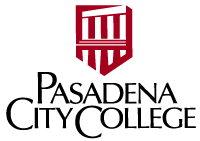
Pasadena City College (PCC) is a public community college in Pasadena, California.

California State University, Channel Islands is a public university in Camarillo, California. It opened in 2002 as the 23rd campus in the California State University system. CSUCI is located on the Central Coast of California, at the intersection of the Oxnard Plain and northernmost edge of the Santa Monica Mountains range. The Channel Islands are nearby where the university operates a scientific research station on Santa Rosa Island.

Paul Quinn College (PQC) is a private historically black Methodist college in Dallas, Texas. The college is affiliated with the African Methodist Episcopal Church (AME). It is the oldest historically black college west of the Mississippi River and the nation's first urban work college.

Texas A&M International University (TAMIU) is a public university in Laredo, Texas. It is part of the Texas A&M University System and home to over 8,500 students each academic semester. TAMIU offers over 70 undergraduate and graduate degrees in four colleges.

Lane Community College is a public community college in Eugene, Oregon, with additional facilities in downtown Eugene, Florence, Cottage Grove, and the Lane Aviation Academy at Eugene Airport. Lane serves more than 26,000 credit and non-credit students annually in a 5,000 square-mile (~8047 km2) service district, including most of Lane County as well as individual school districts in Benton, Linn, and Douglas counties.
Texas Wesleyan University is a private Methodist university in Fort Worth, Texas. It was founded in 1890 by the Methodist Episcopal Church, South. The main campus is located in the Polytechnic Heights neighborhood of Fort Worth. Its mascot is the ram.

Chesapeake College is a public community college with its main campus in Wye Mills, Maryland, and a satellite campus in Cambridge. It was the first regional community college in the state and serves the five Mid-Shore counties: Caroline, Dorchester, Kent, Queen Anne's, and Talbot.

Oakton College is a public community college with campuses in Des Plaines, Illinois and Skokie, Illinois. It was established in 1969 in Morton Grove, Illinois and moved to its current locations in 1980.
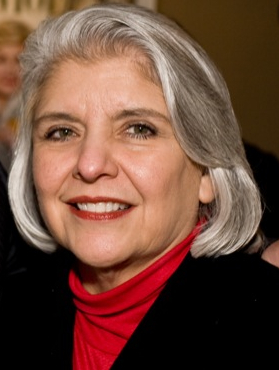
Judith Pappas Zaffirini is an American politician serving as a Democratic member of the Texas State Senate from the 21st District, which includes her home city of Laredo in south Texas. Zaffririni is the first female dean of the Texas Senate. Zaffirini has been named among the "Top 100 Most Influential Hispanics in the United States" by Hispanic Business magazine. Zaffirini is the first Mexican American woman elected to the Texas Senate.

Texas A&M University–San Antonio is a public university in San Antonio, Texas. It is part of the Texas A&M University System. The university was established on May 23, 2009, and held its first classes as a stand-alone university on August 20, 2009. It currently enrolls more than 7,300 students and offers undergraduate and graduate-level classes, as well as a graduate alternative teacher certification program. Texas A&M–San Antonio has 161 full and part-time faculty. Texas A&M–San Antonio is the first Texas A&M University System institution to be established in a major urban center.
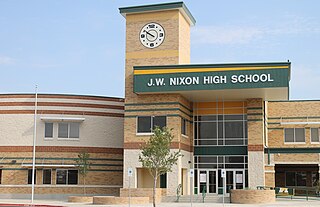
Joseph W. Nixon High School is a public high school located in South Texas, United States. It was built in 1964 as the second high school in Laredo, Texas. The original high school in Laredo is Raymond & Tirza Martin High School, previously known as Laredo High School. Both are part of the Laredo Independent School District (LISD).
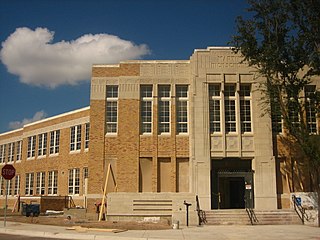
Raymond & Tirza Martin High School is a secondary school in the Laredo Independent School District in Laredo, Texas, United States. Grades 9–12 are taught there. It serves students living in central Laredo. The school is adjacent to the Laredo Civic Center.

The Vidal M. Treviño School of Communications and Fine Arts is a fine arts and communications high school in Laredo, Texas, founded in 1993 by Vidal M. Treviño, the LISD superintendent and a former member of the Texas House of Representatives. High school students from all three of the Laredo Independent School District high schools - Cigarroa High School, Martin High School and J. W. Nixon High School - meeting the acceptance requirements come to the school either in the morning or in the afternoon. They take one core academic class and one fine art or communication class. The academic classes are taught at the Pre-AP or AP level, meaning a more rigorous curriculum than regular level academic classes.

Oregon State University–Cascades (OSU–Cascades) is a branch campus of Oregon State University (OSU) in Bend, Oregon. It is the only university in Central Oregon that offers both baccalaureate and graduate programs. OSU–Cascades also offers professional pathways and certificate programs. The 30-acre campus is the first public university to open in Oregon in more than 50 years. The campus plans to expand academically with new degree programs over a 10-year period.

Esther Gonzalez-Arroyo Buckley was an educator in Laredo, Texas, USA, who from 1983 to 1992 was one of the eight members of the United States Commission on Civil Rights. She was appointed to the board by U.S. President Ronald W. Reagan.

Juan Leandro Maldonado was a higher education administrator who served as the sixth president of Laredo Community College in Laredo in Webb County in South Texas, US. In August 2007, upon the sudden retirement of Ramón H. Dovalina, Maldonado assumed the LCC presidency. Maldonado retired from LCC effective August 1, 2016.

In April 1965, the Texas Legislature transferred Arlington State College (ASC) from the Texas A&M University System to the University of Texas System. The following year, Maxwell Scarlett was the first African-American graduate in ASC history. In March 1967, ASC was renamed the University of Texas at Arlington (UTA). Jack Woolf, president of ASC and UTA since 1959, resigned in 1968 and was succeeded by Frank Harrison; Harrison was president until 1972. UTA awarded its first master's degrees in 1968, all in engineering. Reby Cary, the university's first African-American administrator, was hired the following year.























